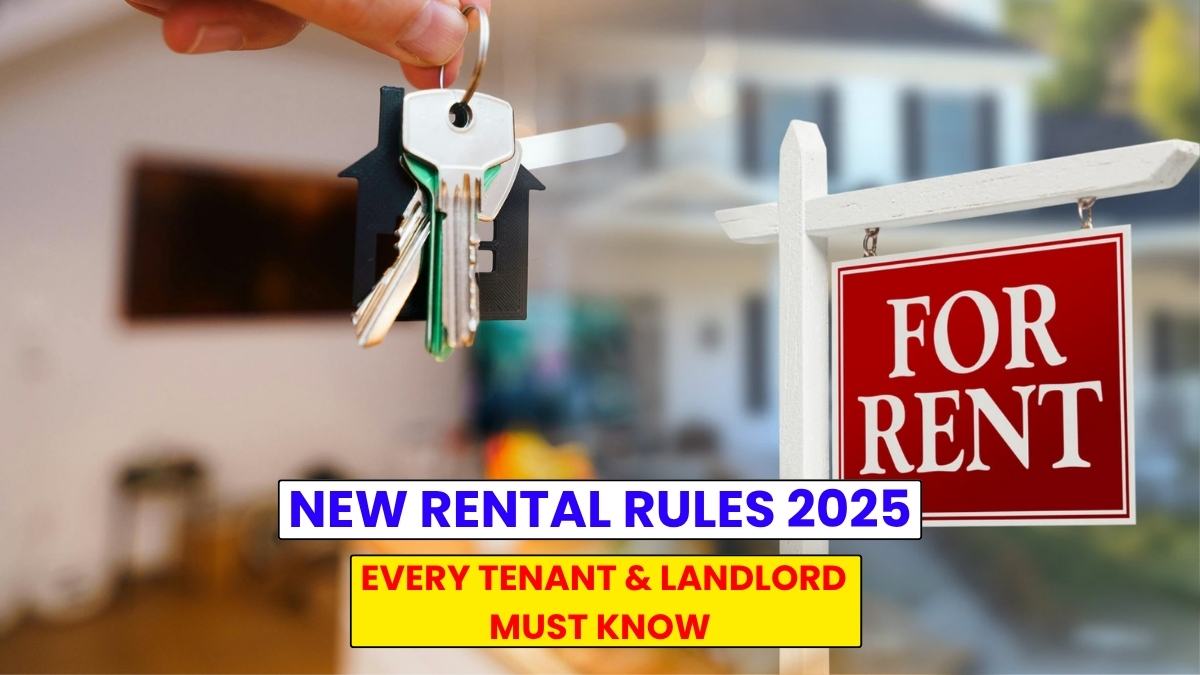As a tenant, keeping up with changes in rental laws can sometimes feel like a full-time job. But don’t worry 2025 brings a big update to rental rules in India that every tenant needs to understand. These new laws impact rent agreements, security deposits, and even the process of eviction.
If you’re renting a house or apartment, the updated guidelines may affect your rights and responsibilities. Here’s everything you need to know to stay informed and avoid any surprises!
What’s New in Rental Laws in 2025?
The government has introduced new rental regulations in 2025 to ensure fairness for both tenants and landlords. The primary goal is to protect tenants from unreasonable rent hikes and secure their rights during the eviction process, while also setting clear terms for security deposits.
Here are the key changes:
1. Capping Rent Hikes
Rent increases are no longer completely at the landlord’s discretion. As per the new laws, rent hikes will be capped at 5% per year for residential properties. This is a relief for tenants who have faced sudden and excessive rent increases in the past.
2. Security Deposit Rules
Landlords will no longer be able to demand exorbitant security deposits. The new law caps the deposit amount at 2 months’ rent for residential properties (instead of the previous norm of 3-6 months). This is a significant improvement for tenants, as it lowers the upfront costs of renting.
3. Eviction Process Simplified
Eviction procedures have been streamlined, making it harder for landlords to arbitrarily evict tenants. Eviction without a valid reason or notice is now restricted. If a landlord wishes to evict a tenant, they must now provide a clear notice of 6 months. Additionally, courts will be required to act more swiftly in eviction disputes, ensuring tenants are not unfairly displaced.
4. Online Registration of Rent Agreements
Rent agreements must now be digitally registered with local authorities. This eliminates confusion about terms and prevents disputes in the future. Registration helps both tenants and landlords have legally valid, easily accessible contracts for better security.
Why These Changes Matter for Tenants
These changes come as a welcome relief for tenants who have often faced challenges like:
- Unpredictable rent hikes without any clear justification
- Unfair eviction notices with little or no warning
- High security deposits that make it harder to afford renting a place
The new rules are intended to level the playing field between landlords and tenants, promoting long-term stability in rental agreements. Tenants can now enjoy greater security in their homes, knowing that rent increases and evictions will follow a clear and just process.
How the New Rules Affect Rent Agreements
The rent agreement itself is also a crucial part of the new law. The 2025 update makes it mandatory to include detailed clauses about rent, duration, maintenance responsibilities, and termination conditions. For tenants, this means:
- Clear terms on rent escalation
- Transparency on maintenance charges and responsibilities
- More detailed guidelines on termination procedures in case either party wants to end the lease
Having a clear agreement ensures that both the tenant and the landlord know exactly what’s expected, minimizing disputes down the line.
When Do These Changes Apply?
The new rental laws apply immediately from 2025 onward, but their implementation may vary slightly across states and cities. The aim is for all landlords and tenants to follow these rules when renewing their leases or entering into new agreements.
Common Mistakes Tenants Make and How to Avoid Them
While the new rules bring a lot of benefits, there are still common mistakes tenants can make when it comes to rental agreements:
- Not registering rent agreements: Ensure your agreement is legally valid and registered with the local authorities.
- Agreeing to excessive rent deposits: Always ask for the deposit amount in writing and ensure it’s capped at 2 months’ rent.
- Not reading the fine print: Always go through the rent agreement carefully, especially clauses on rent hikes, eviction notices, and responsibilities for property maintenance.
By understanding these simple points, you can ensure your rights are protected under the new laws.
How to Check if Your Rent Agreement Follows the New Laws
Here’s how you can ensure your rent agreement aligns with the 2025 rental laws:
- Check the rent escalation clause: Make sure it’s capped at 5% per year.
- Confirm the deposit amount: It should not exceed 2 months’ rent.
- Review eviction terms: Ensure you have a 6-month notice period before eviction.
- Ensure the agreement is digitally registered: Your agreement should be registered with local authorities and stored digitally.
If any of these terms are not followed, it might be worth discussing them with your landlord or seeking legal advice.
Conclusion
The 2025 rental law updates are a big step toward making the rental process more transparent and fair for tenants. These changes aim to protect tenants from unreasonable rent hikes, high security deposits, and arbitrary evictions.
If you’re currently renting, make sure your agreement reflects these new laws, and if you’re moving into a new place, ask your landlord about the updated rental rules before signing anything.
Stay informed, know your rights, and make sure you’re not paying more than you should.
FAQ
1. When do the new rental laws come into effect?
The 2025 rental law updates are effective immediately, but their implementation may vary by state or city. Ensure that your rental agreement aligns with these changes.
2. How much can my rent increase under the new law?
Rent hikes are capped at 5% per year, which means landlords cannot raise the rent by more than that amount annually.
3. How much security deposit can a landlord charge?
The maximum security deposit a landlord can ask for is 2 months’ rent for residential properties, reducing the financial burden on tenants.



